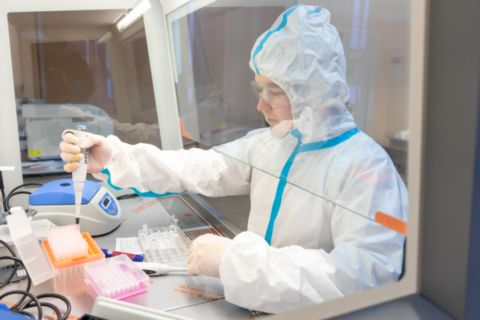Within the framework of the strategic project “Human Health in the Era of Digital Transformation of Society” under the Priority 2030 program, SUSU neuroscientists are working on solving a problem of national importance – the correction of post-traumatic stress disorders (PTSD), which are acquired, including after being in combat conditions. Scientists have found that replenishing dopamine deficiency contributes to the formation of resistance to PTSD. The research results are published in several articles in the highly-rated International Journal of Molecular Sciences.
PTSD is a severe mental disorder that develops in people after they have experienced a life-threatening event. It can lead to mental and somatic diseases, especially bad for the cardiovascular system.
“Among those suffering PTSD are former hostages, prisoners, and victims of violence. However, PTSD resulting from combat stress is a more complex and dangerous type of disorder than PTSD caused by other stressful events. If we learn how to correct or prevent the most complex form of PTSD, then treating this disease will be removed,” said the project leader, Doctor of Biology, Professor Vadim Tseylikman.
Post-traumatic stress disorder does not develop in everyone, in 20-30% of people are exposed to traumatic events. Of course, the PTSD resistance mechanism is a multifactorial construct. The nature of the reaction to severe stress depends on individual vulnerability or resistance, primarily determined by the activity of gene networks. SUSU scientists are looking for influences that can effectively interfere with the work of gene networks and cope with the development of PTSD. Traditional approaches to disease treatment aim at stabilizing the level of serotonin. Experimental data obtained in the Laboratory of progressive studies of the molecular mechanisms of stress showed that the development of PTSD develops differently. It is necessary to abandon the generally accepted methods of correction: it is necessary to study the exchange of another neurotransmitter - dopamine. It is the deficiency of dopamine in the human body that leads to a gross violation of microcirculation in key brain structures and makes susceptibility to PTSD possible.
.jpg)
“Understanding how the gene network works, it is possible to predict the genes that are drivers in the development of PTSD. We are not just studying PTSD we set up a new experimental model of combat stress - life threats and encounters with the enemy. The need for our work has become especially significant in the context of the NWO,” shared Vadim Tseylikman.
The model of combat stress is reproduced by reconstructing the critical environment for rats - imaginary proximity to a predator, which they recognize by smell. Comparative analysis was subject to experimental groups of animals whose behavior became depressed and whose behavior did not change or even acquired hyperactivity. We studied the part of the brain in which an increased expression of neurotrophin genes was found that determines the level of neuroplasticity - resistance to damaging effects (PTSD).
Research and Education Center "Biomedical Technologies" of SUSU found that neuroplasticity genes are inactive in rats with suppressed behavior, which means that there is no synthesis of the protein that promotes the development of resistance. Rats, whose behavior did not change, on the contrary, had a high content of neurotrophins. The genetic study also showed the expression of the genes responsible for this. Experiments by scientists have confirmed that disturbances in neuronal transmission lead to behavioral disorders, chronic stress, and the occurrence of complications in the internal organs. There is a group of substances and drugs that are candidates for pharmaceutical PTSD treatment. A multicenter research group is formed to study the use of such substances.
The reliability of the preparations will be experimentally studied at the SUSU Laboratory for Advanced Studies of Molecular Mechanisms of Stress and at least in five laboratories of academic centers in Moscow and St. Petersburg. The result of this scientific work will show new possibilities of these drugs for the PTSD and other pathologies treatment.
Earlier, SUSU scientists also studied the topic of post-traumatic disorder and the impact of stress on the functioning of the brain, heart, adrenal glands, and other internal organs.
South Ural State University is a university of transformation, where innovative research is carried out in most priority areas of science and technology development. In accordance with the strategy of scientific and technological development of the Russian Federation, the university focuses on the development of major scientific interdisciplinary projects in the field of the digital industry, materials science, and ecology. In 2021, SUSU won the competition under the Priority 2030 program. The university performs the functions of a regional project office of the Ural Interregional Research and Educational Center, designed to solve the tasks of the national project Science and Universities.
In the official Telegram Channel of South Ural State University you may read the last news of the university or ask your questions.




